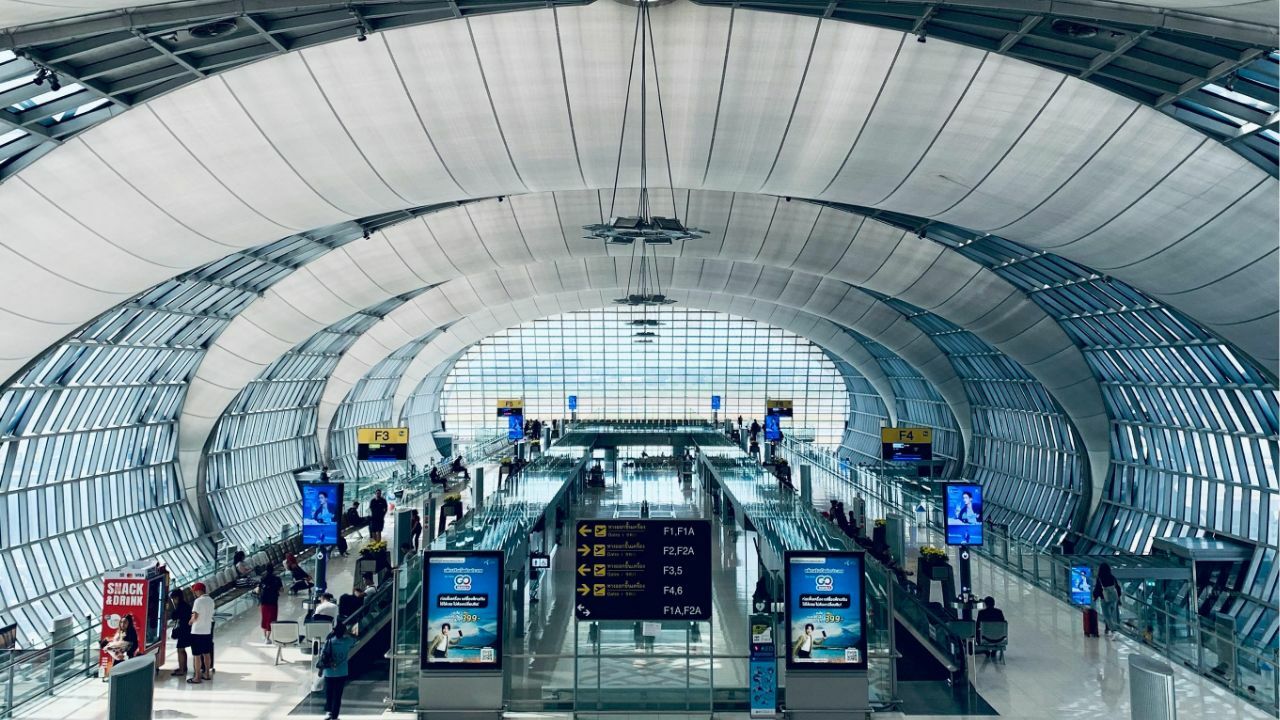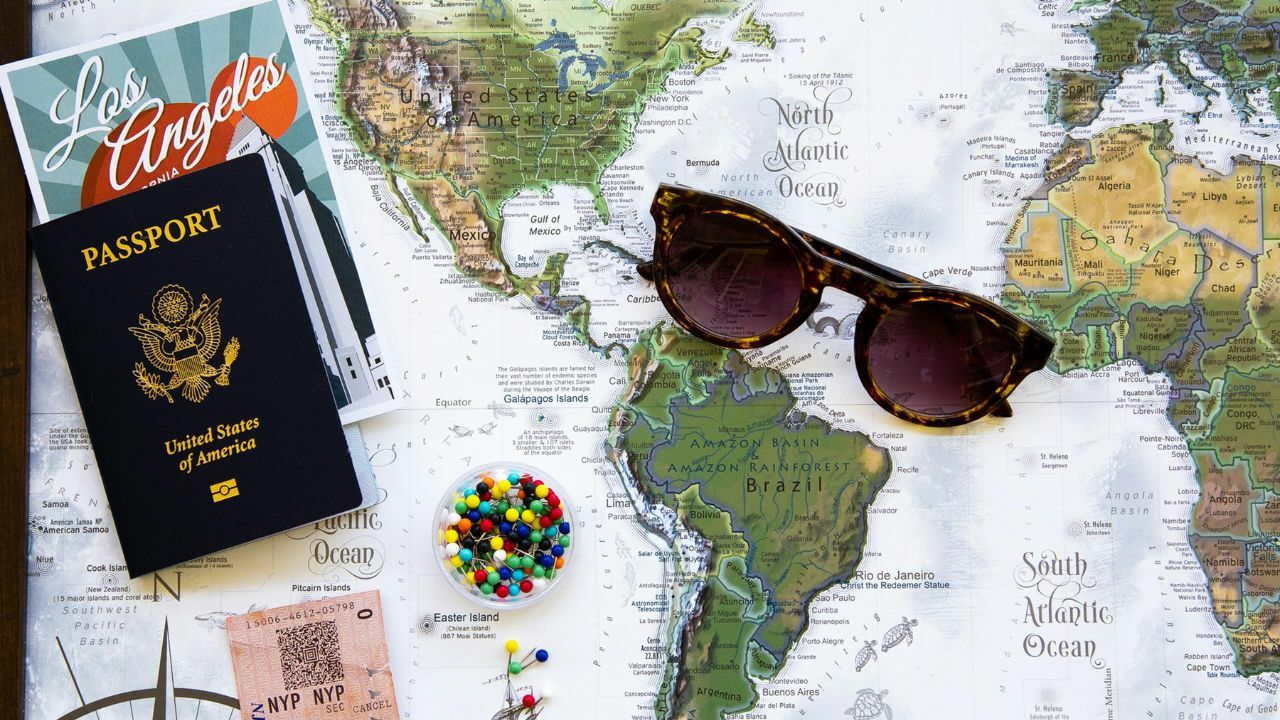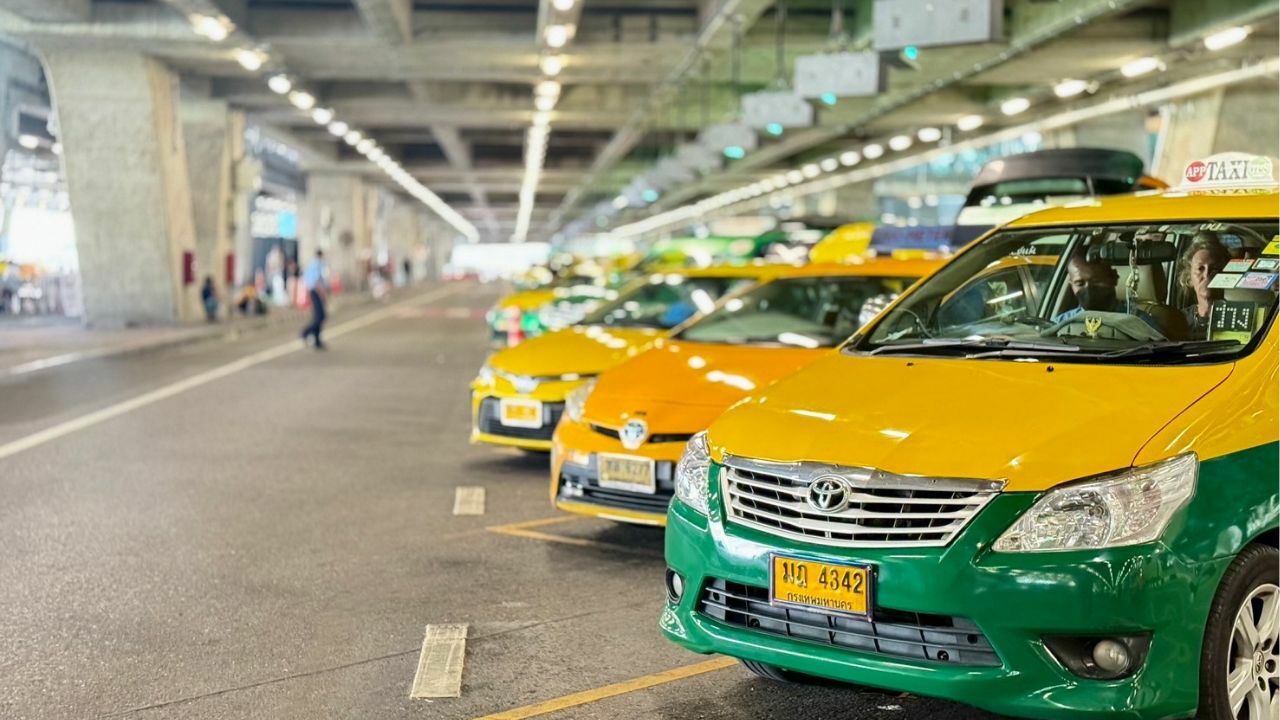

After Covid-19, a new era emerged of digital work styles and a generally better work-life balance. This prompted a shift in workplace culture, allowing many to travel more frequently, or even move entirely and begin new lives. A significant impact of this shift was the rise in expats – people living in a country different from their native one, and digital nomads.
In recent years, these lifestyles have become extremely popular, prompting people to move abroad, and one of the many hotspots for these settlers is Thailand. If you are an aspiring expat, digital nomad, or even a traveller with Thailand on your destination list, this comprehensive guide will explain some of the most important details about Thailand, including what you should know before you depart like Visa requirements, social norms, airport transportation, health insurance, and more.
On this page
| Jump to Section | Description |
|---|---|
| Visa & residency avenues | Details about visa options, requirements, and processes for expats and digital nomads in Thailand, including Business and Retirement Visas. |
| Airport transportation | Information about the best transportation options for getting from Thai airports to your accommodation, including Grab and local taxis. |
| Thai weather | Information about Thailand’s weather seasons, with details about the wet and dry seasons, temperatures, and essential items for comfort. |
| Health insurance & emergency information | Overview of the importance of health insurance for expats in Thailand, including the necessity of international coverage and emergency contacts in Thailand. |
Visa & residency avenues

Like many other countries, to begin your journey to staying long-term in Thailand, you need a visa, and the traditional tourist visa won’t cut it. Depending on your visa type, the embassy can have strict requirements regarding Visa and citizenship pathways, which may seem confusing. But fear not—this guide is here to accompany you through the various ways you can stay in Thailand long-term.
Business visa
For many foreigners and expats, the Business Visa is a popular way to work and live long-term in Thailand, which often opens up the long path to permanent residency and Thai citizenship. There are 3 classifications of business visas, business, teaching, and working/internship.
This guide will describe the working/internship Visa, but be mindful that you need to get approved for a WP3 before you can apply. To apply for and potentially get approved for a business visa you will need the following things:
- Be a foreigner who wants to conduct business, seek employment, invest, or engage in business activities
- Your Passport must be valid for a minimum of 6 months
- A photo of the applicant taken within the last 6 months
- Completed application form
- Financial Evidence 20,000 baht per person, 40,000 baht per family
- WP3 Form (Letter of Approval from the Ministry of Labour)
- Copy of Work Permit
- Company Letter indicating position, salary, and visit purpose
- Company Letter of invitation
- Proof of accomodation
There are two sorts of business Visas which are single entry and multiple entry. Single entry costs 2000 Baht and has a 90-day validity, while multiple entry is 5,000 baht and has a 1-year validity. While the visa itself may be valid for a year, each entry is limited to 90 days, but while you are in Thailand you can apply for an extension before your 90 days expire!
Retirement visa
Many expats coming to Thailand are not only coming for work or tourist reasons, but thousands every year are interested in leaving their home countries permanently to retire in the Land of Smiles. Thailand offers 2 main options for retirement visas, including Type O and Type O-A. Type O is applied for while you are in Thailand, while Type O-A can be applied for from abroad. The O-A type. A word of caution, with a retirement visa you cannot work. This visa type is valid for approximately 1 year from issuance.
To apply for and maintain an O-A Retirement Visa, you must meet and/or submit the following requirements.
- The applicant must be 50 years of age or older
- Complete the application form
- Show proof of a monthly income of 65,000 baht (roughly US$2,000) OR a minimum account balance of 800,000 baht (roughly US$25,500) for 2 months or more
- A passport with a minimum of 12 months remaining validity
- Proof of health insurance which meets the requirements for the authorities (covering 400,000 baht inpatient and 40,000 baht outpatient)
- Sufficiently reports the current address to Thai authorities every 90 days
- Completed the required criminal background check
- Obtained a medical certificate from a licensed physician ensuring you contain no contagious infections or diseases.
TDAC (Thailand digital arrival card)
Starting from May 1 of this year the Thai government discontinued the TM6 Form and replaced it with the TDAC (Thailand Digital Arrival Card) which is necessary for every foreign citizen arriving in Thailand. The TDAC is necessary before you can legally enter Thailand regardless of any visa status or stay duration. The form is used by the government to provide security for foreigners and citizens and includes a health declaration to help prevent the spread of infectious diseases. You can submit the TDAC within 3 days of arrival at the government website.
Airport transportation

After clearing customs, you will realise that Thailand uses multiple forms of transportation. For travel from the airport to your accommodation, we would suggest using Grab, which is basically the Southeast Asian version of Uber. They tend to be more hassle free than the taxi services at the airport but the pricing can be more expensive.
A word of caution is that if you choose to use a taxi from the airport, you may be subject to a language barrier, overpricing, and/or haggling. In general, while you’re in Thailand, if you choose to take a tuk-tuk, motorbike, or taxi by flagging them down on the street, always agree to a price before hopping on. There is a rule that started on June 1 that any passenger on a motorbike who is not wearing a helmet could be subject to fines.
Throughout the country, there are various train systems but the biggest are the BTS SkyTrain, MRT, SRT, and the ARL. Many travellers flying into BKK (Suvarnabhumi) airport take advantage of the convenience of the ARL (Airport Rail Link) station directly underneath BKK. This line runs between Suvarnabhumi and Phaya Thai with 8 stops and connects to the MRT and BTS train lines.
Thai weather
Compared to countries like the US or UK, which have 4 seasons, Thailand only has 2 main seasons – Wet and Dry. The wet season, commonly known as the rainy or monsoon season and it occurs roughly from May through to October.
During this time, temperatures average between 28 to 33 degrees Celsius (82 and 93 degrees Fahrenheit). This is also when we see peak humidity in Thailand’s climate, between 70-80%. The wet and sticky humidity can make these temperatures feel even hotter, so it’s advised to wear breathable clothes. Some recommendations are cotton or linen clothing, which are highly rated for their breathability and comfort.
Dry season usually lasts from November to May and is known for its lower temperatures of roughly 21 to 29 degrees Celsius (70- 85 degrees Fahrenheit), and its low humidity (50-65%). These temperatures are subject to change depending on the region you choose to reside in; typically the north (example: Chiang Mai) tends to be cooler compared to places like Bangkok or Phuket (South).
Carrying water is almost a necessity in this heat, and it is extremely advised to always wear sunscreen and to invest in a proper umbrella and mosquito repellent.
Health insurance & emergency information

Health insurance
Having health insurance abroad is a necessity and often is a condition of visa application approvals. For non-citizens, care quality, cost, and accessibility can vary widely which emphasises the importance of having international health insurance.
You never know when you may need to go to the hospital, and just like in the West, having insurance can shield you from hefty unexpected medical expenses, making treatment and recovery smoother. A well-renowned international insurance provider is Cigna Health Care and their plans are well-suited for those who are or are planning to live, study, or work abroad long-term, and include global coverage for inpatient and outpatient care, and mental health support among other things.
The plans have customisable tiers to fit your needs and specialise in preventative care, though even if Cigna does not fit your needs, keep in mind that there are hundreds of options at your disposal!
Emergency contacts: In case of any emergencies, for the Thai tourist police dial 1155, and for the Thai Ambulance service dial 1669. It would benefit you to know what are the common emergencies though so you can be prepared just in case.
Although the process of becoming an expat or digital nomad can seem daunting, life is about taking risks and adventures; Thailand, the land of smiles, is the perfect destination to begin or end your journey. With that in mind, you can mitigate the risks through the plans that you can find from Cigna to help you.
For more information, please continue to read on the Thaiger Website.
The story What do you need before moving from the US to Thailand? as seen on Thaiger News.
